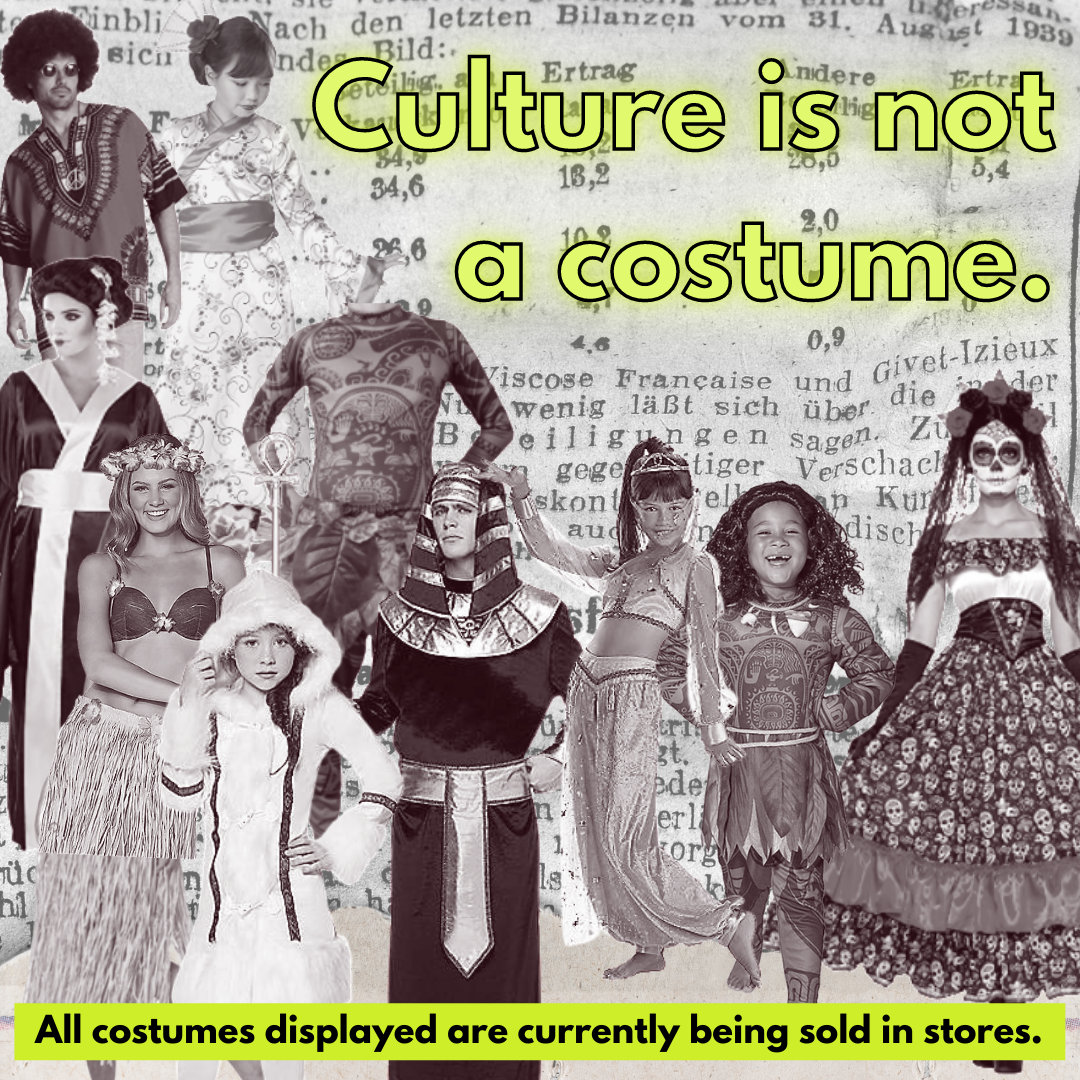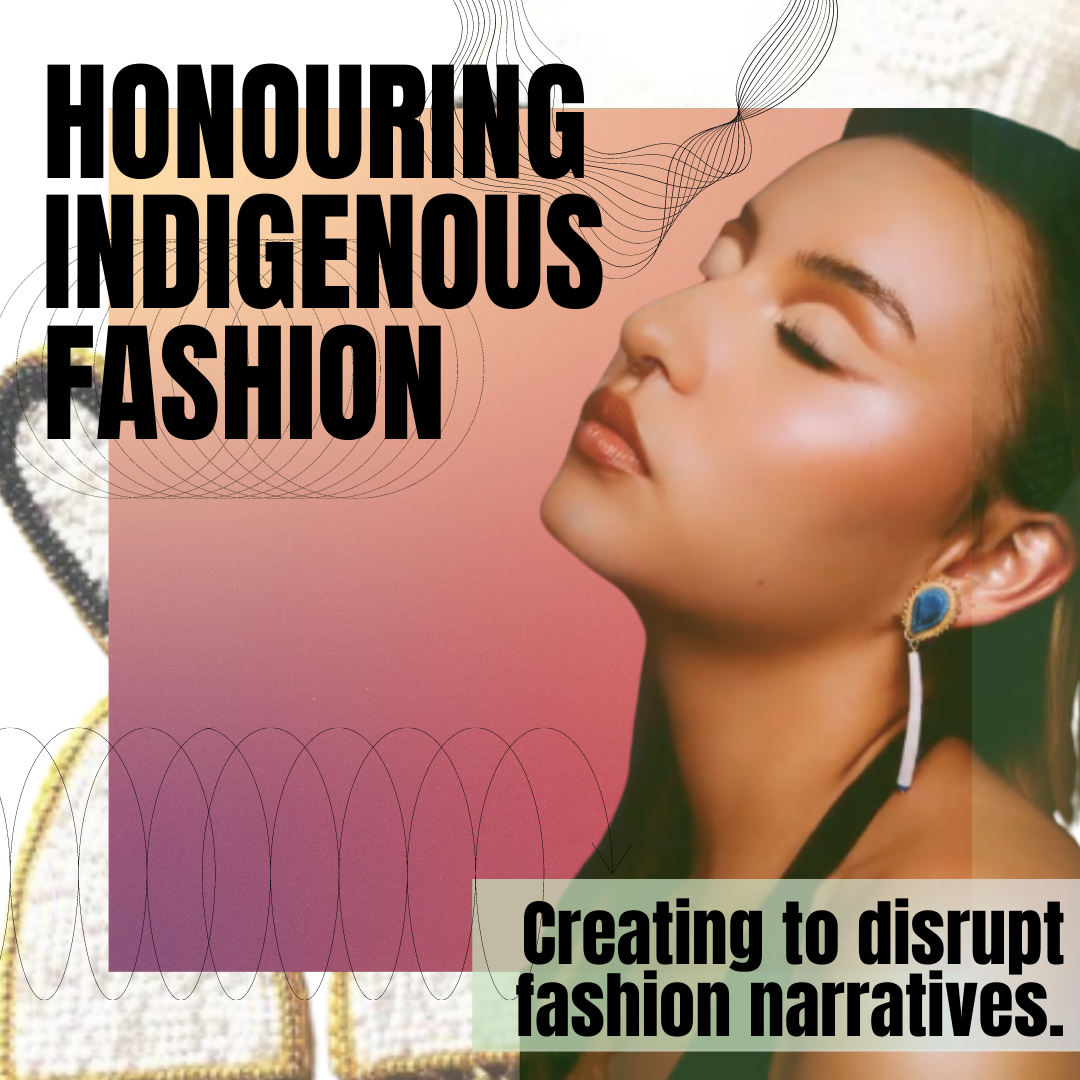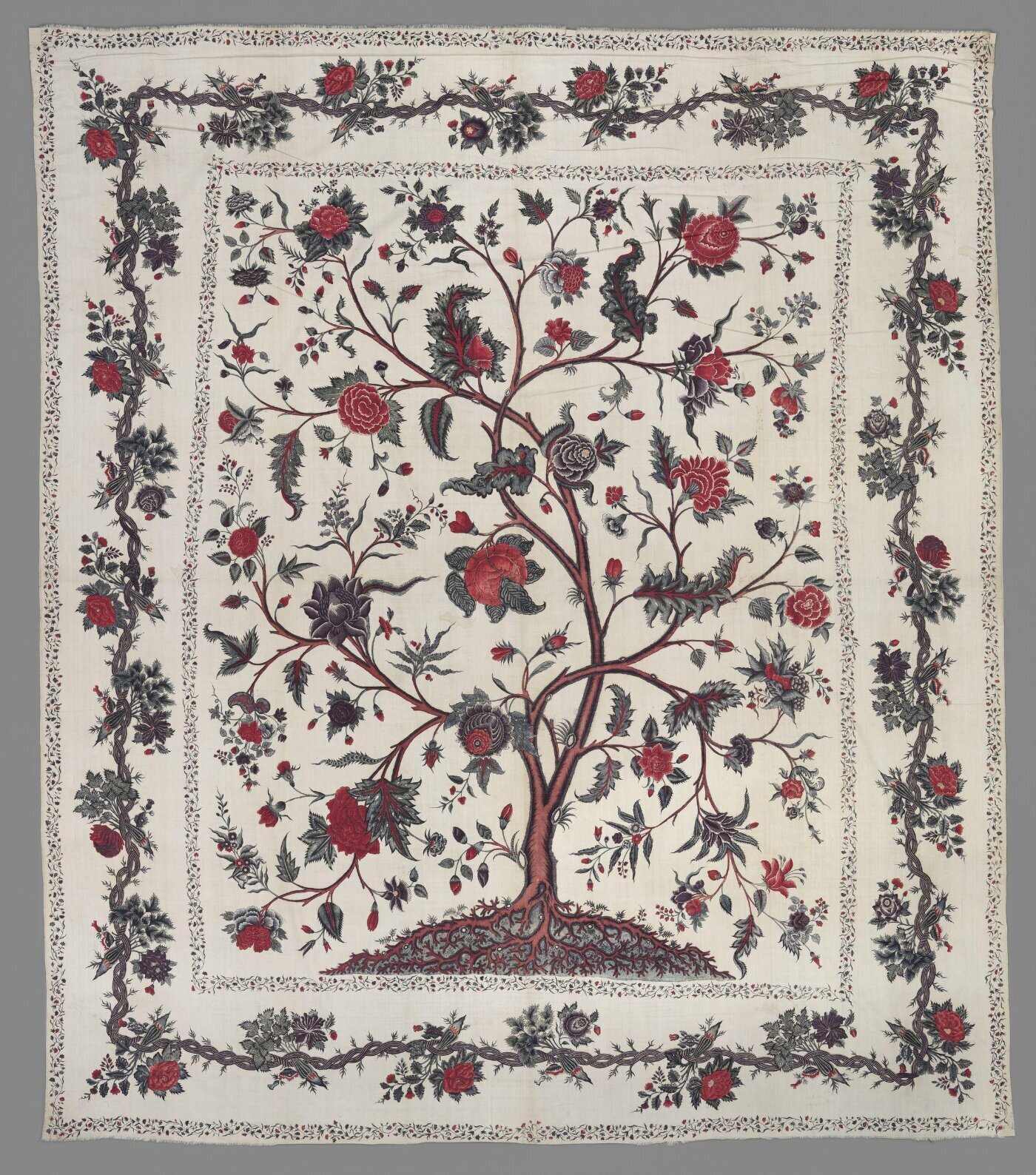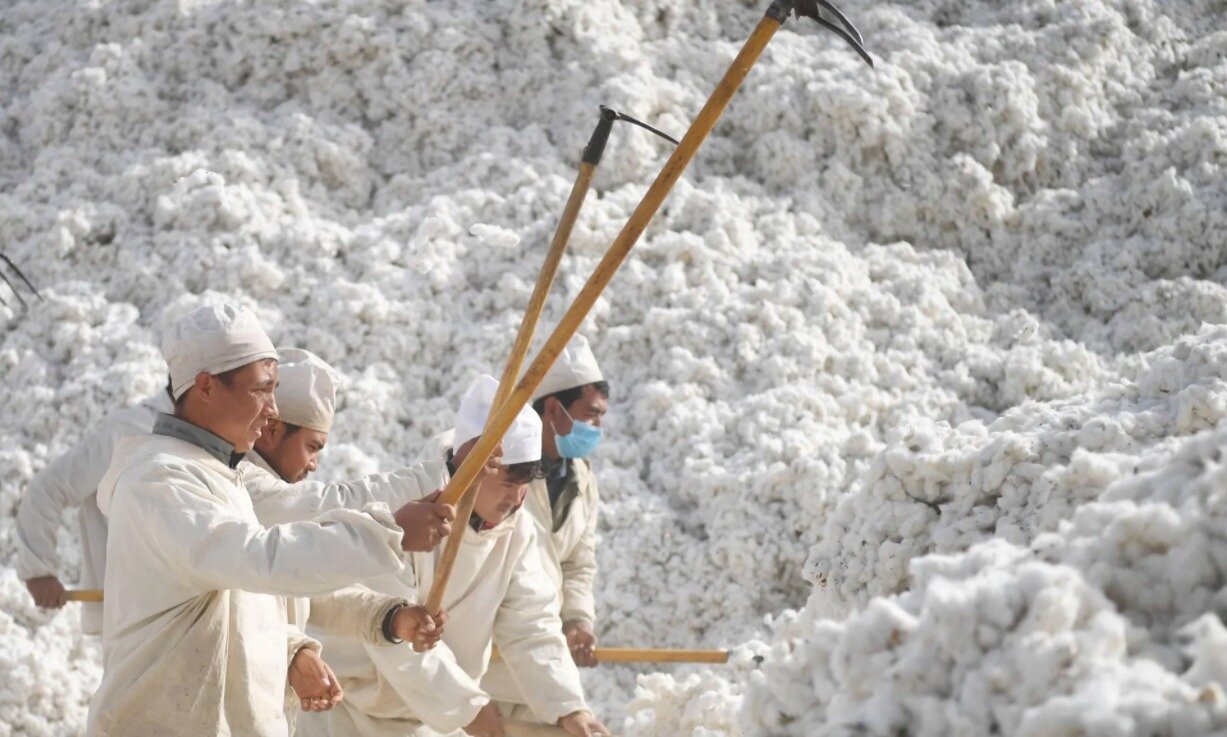
Threading the Connections between the SDGs and the Current Fashion and Textiles Industry
This first intro is an unpacking of Goal 1: “end poverty in all its forms everywhere”. The progress on this goal is facing compounding threats. The COVID-19 pandemic has raised the global poverty rate for the first time in over 20 years. With the threats of the ravaging pandemic, conflict and reactions to climate change the UN has expressed its realistic assessment that this goal will not be achieved without significant and advantageous action taken around policy and systems in place for protecting health, well being, income, employment and social protection to the most vulnerable members of our society. They have predicted that 600 million people by 2030 will still be living in extreme poverty.

Cultural Appropriation: An Analysis of Costumes
Cultural appropriation is on the runway, it's in food trends, luxury fashion and hair styles done in photoshoots. We have heard it before, but do we truly understand the implications it has? Cultural appropriation is harmful, problematic, and it represents a general ignorance to the connections history of dress carries with white supremacy, colonialism and power hierarchies. These acts of cultural appropriation, oppression, racial stereotyping, or sexual fetishization rely on the harmful stereotypes about Black, Indigenous and People of Colour that originate from historical power dynamics. The dominant, Eurocentric culture steals experiences and elements from a group of people or culture that is experiencing ongoing systemic oppression. When we are culture appropriating we are removing culture from its context, history and knowledge perpetuating harmful interpretations, stereotypes and systemic oppression of cultural groups and individuals.

Fashioning Indigenous Identity and Resistance
Written by: Isabelle Sain, Communications Designer @ Threading Change
Editor: Sarah O’Rourke, Communications Manager @ Threading Change
[14-minute read]
Since first contact by settlers, Indigenous peoples, Trans, and 2spirit relatives have been made vulnerable through the appropriation of traditions and culture, and assimilation and forced displacement; both are continuous colonial strategies of extraction through cultural genocide.

Exploring the Significance of Traditions
Written by: Isabelle Sain, Communications Volunteer @ Threading Change
Editor: Sarah O’Rourke, Communications Manager @ Threading Change
[3-minute read]
Over the years, society’s relationship to tradition has declined. The rapid pace of scientific discoveries, and advancements in technology and manufacturing have led to a rise in mass production, and have further contributed to a shift away from traditional crafts.

Fashion and Colonialism: a Case Study of India
Written by: Caroleen Molenaar, Research and Content Coordinator
[7 minutes read]
The relationship between fashion industries and colonialism is deeply intertwined within history, and the present day. This blog post explores these relationships by using India’s past and present as a case study: from chintz to garment workers.

Recycled plastic in clothing- is it sustainable?
Co-Written by: Karolina Lagercrantz, ICM & Carissa Kirk, Threading Change
[7 minutes read]
In this blog post, we invite you to think more critically about the promises of sustainability made by companies using recycled plastics in their clothing. How sustainable is it to use recycled plastics in fashion? What are the opportunities and what are the challenges? By asking these questions, we want to illustrate the importance of understanding all the unintended consequences that may emerge as we try to innovate for sustainable change.

Where DO my Clothes Go?
Written by: Caroleen Molenaar, Research and Content Coordinator
[7 minutes read]
Before you put your used clothes in a bag or box to donate them, do you ever consider where your clothes actually go? This article aims to unpick the most common scenarios and outcomes of the journey of your clothes once you release them into the world of second-hand clothing.

Beyond greenwashing: The sinister ties of the fashion industry with modern slavery
Written by: Fernanda Bernado, Assistant Programs Director at Threading Change
[9 minutes read]
With the many challenges 2020 has brought into our world, long gone are the days we spend complacent, unsure of how, or why we need to do things differently. It’s clear that we need to uphold our commitments to scale back unnecessary consumption and move towards industry transformation.
One industry that needs transformation at the global scale is the fashion industry. But did you know that, according to a 2018 report by the Walk Free Foundation, the garment supply chain funnels more money toward modern slavery than any other industry besides technology?

Why We Need to Start Threading Change
Written by: Sophia Yang, Founder & Director of Threading Change
[15 minutes read]
Today I want to let you in on #WhyWeNeedToStartThreadingChange, a play-on-words with ‘spreading change’.
Threading Change is a new ethical fashion organization that works towards accessible education in the fashion and apparel industry, whilst raising the profiles of those who have been undermined and exploited by the industry, through research, storytelling, policy implementation, and collaboration.
